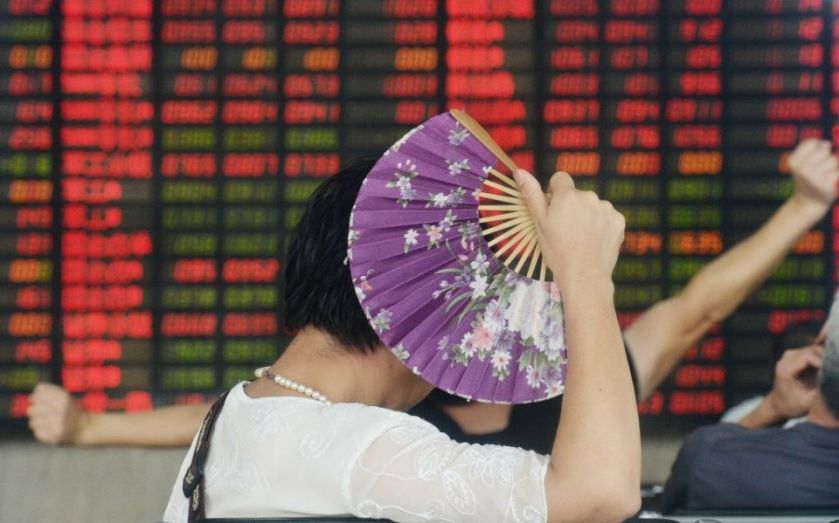Where to invest following stock market carnage: Europe and China top the experts’ buy lists

Global stock markets took a battering this summer. At one point, nearly $2 trillion had been wiped off the value of shares across markets as diverse as Germany, China, the US and Argentina.
The falls were trigged by worries over the state of China’s economy. Although Chinese companies make up only a small part of savers’ pensions and investment portfolios, as the world’s second-largest economy any slowdown in China can have repercussions around the world.
Although most of the world’s stock markets have recovered since the worst of the selling mid-August, in some places share prices are still lower than before.
And uncertainty persists. Some experts have been saying the turbulence in markets may reflect a slowing world economy, one that is not ready for the interest rate rises which had been expected in the US and UK in the coming months.
Where markets go from here is anyone’s guess, but with many shares now cheaper than they were before the summer, some investment managers think now is the time to be buying, rather than selling.
We ask the experts where they would invest, looking at the safe option and a couple of contrarian choices too.
SAFER CHOICE: EUROPE
The years-long Greece problem is never far from the headlines, giving Europe a sickly sheen.
But despite the region’s economic problems, its stock markets have done exceedingly well in the last few years. The QE money printing programme put in place by the European Central Bank is making conditions easier for companies to do business, as it pushes down the value of the euro and makes buying raw materials cheaper.
“For now, companies that are exposed to the domestic economies of Europe still remain interesting opportunities,” says Sheridan Adnams of The Share Centre. “So far, European equities have risen strongly on actions from the European Central Bank.”
One popular fund is Henderson European Selected Opportunities. This fund is not at the very top of the ratings lists, as it comes in around fifteenth place out of 92 European funds over five and ten years.
However, it has still made investors an impressive 73 per cent in five years and manager John Bennett is very well regarded – he should be capable hands for investors’ cash over the next decade too.
“This fund has been run with a clearly defined investment strategy. It is likely to be relatively defensive and focused on large companies which can weather Europe’s storms,” says Adrian Lowcock of Axa Wealth.
CONTRARIAN CHOICE: CHINA
China’s crumbling stock markets have been the cause of much of the summer’s mayhem. Shares on the main Shanghai Composite stock exchange rose 160 per cent in just 12 months before falling spectacularly, down 30 per cent in two months.
Luckily, there are limited options for foreigners wanting to buy shares in China, so most savers in the UK will have little invested there, if anything at all. The stock market was driven by local investors.
For many years Westerners have been pushing for more access to Chinese shares, but understandably this has put many people off.
But most of the reasons why people wanted to invest in China in the first place are still there. It has well-established companies with tens of millions of customers, and investment opportunities in technology, e-commerce and mobile communications companies.
Tom Beckett of Psigma Investment Management believes good returns could come from Chinese shares in just three years.
“If you have a three-year view, a rare quality these days, then there is great money to be made in China,” he says. “Yes, there will be moments when you will temporarily question what you are doing and it might take a while to play out, but by moving far away from the maddening bearish crowd and looking towards China, you could be investing in a [great] contrarian opportunity.”
One well regarded fund which invests in the country is Invesco Perpetual Hong Kong & China. It aims to invest in large companies which are top of their industry. “All companies in the fund must have some dividend, as this forces the company’s management to be disciplined,” explains Darius McDermott of FundCalibre.
CONTRARIAN CHOICE: COMMODITIES
The prices of all kinds of commodities, such as oil and copper, have fallen greatly this year. Again, some of this is because of worries about China – the country that has been buying huge amounts of resources from around the world, as it has been building out towns and cities across the nation.
Without China as the main buyer, investors are worried there will be little to keep commodity prices up.
The outlook for commodities in the short term is not great. But over a much longer timeframe, looking at the next decade and beyond, demand may well return.
Economies tend to go in cycles, with growth spurts followed by years of slowdown. If China and the rest of the world’s economies recover and begin building out infrastructure again, there will be buyers of these finite resources.
Since shares in commodity-related companies are very low at the moment – Royal Dutch Shell, for example, is down 36 per cent this year alone – investors could buy up shares in global companies very cheaply.
“At these levels commodities look attractive, in particular oil, and exposure to the sector would be suitable for patient long-term investors willing to accept some volatility and drip feed money in,” says Axa Wealth’s Lowcock. One well-regarded fund is JP Morgan Natural Resources which invests in oil, energy, industrial and precious metals.
“This fund will struggle in periods of falling commodity prices but should deliver in a commodity bull market,” he adds.